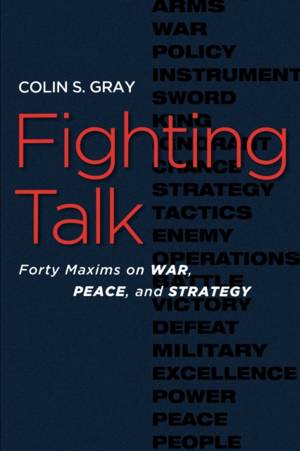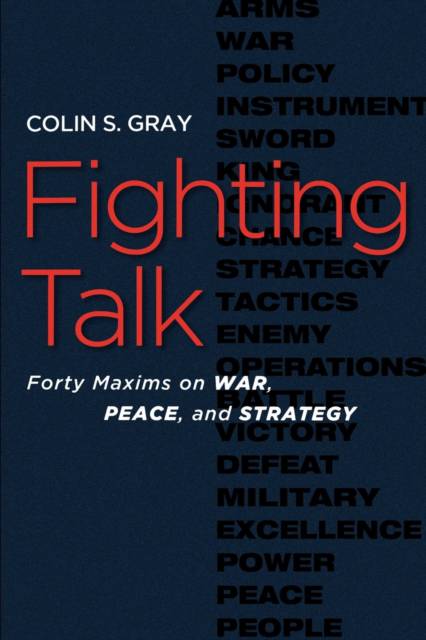
- Afhalen na 1 uur in een winkel met voorraad
- Gratis thuislevering in België vanaf € 30
- Ruim aanbod met 7 miljoen producten
- Afhalen na 1 uur in een winkel met voorraad
- Gratis thuislevering in België vanaf € 30
- Ruim aanbod met 7 miljoen producten
Zoeken
€ 27,95
+ 55 punten
Omschrijving
Colin Gray presents an inventive treatise on the nature of strategy, war, and peace, organized around forty maxims. This collection of mini essays will forearm politicians, soldiers, and the attentive general public against many--probably most-- fallacies that abound in contemporary debates about war, peace, and security. While one can never guarantee strategic success, which depends on policy, military prowess, and the quality of the dialogue between the two, a strategic education led by the judgments in these maxims increases the chances that one's errors will be small rather than catastrophic. The maxims are grouped according to five clusters. "War and Peace" tackles the larger issues of strategic history that drive the demand for the services of strategic thought and practice. "Strategy" presses further, into the realm of strategic behavior, and serves as a bridge between the political focus of part one and the military concerns that follow. "Military Power and Warfare" turns to the pragmatic business of military performance: operations, tactics, and logistics. Part four, "Security and Insecurity," examines why strategy is important, including a discussion of the nature, dynamic character, and functioning of world politics. Finally, "History and the Future" is meant to help strategists better understand the processes of historical change.
Specificaties
Betrokkenen
- Auteur(s):
- Uitgeverij:
Inhoud
- Aantal bladzijden:
- 208
- Taal:
- Engels
Eigenschappen
- Productcode (EAN):
- 9781597973076
- Verschijningsdatum:
- 1/08/2009
- Uitvoering:
- Paperback
- Formaat:
- Trade paperback (VS)
- Afmetingen:
- 154 mm x 228 mm
- Gewicht:
- 326 g

Alleen bij Standaard Boekhandel
+ 55 punten op je klantenkaart van Standaard Boekhandel
Beoordelingen
We publiceren alleen reviews die voldoen aan de voorwaarden voor reviews. Bekijk onze voorwaarden voor reviews.








